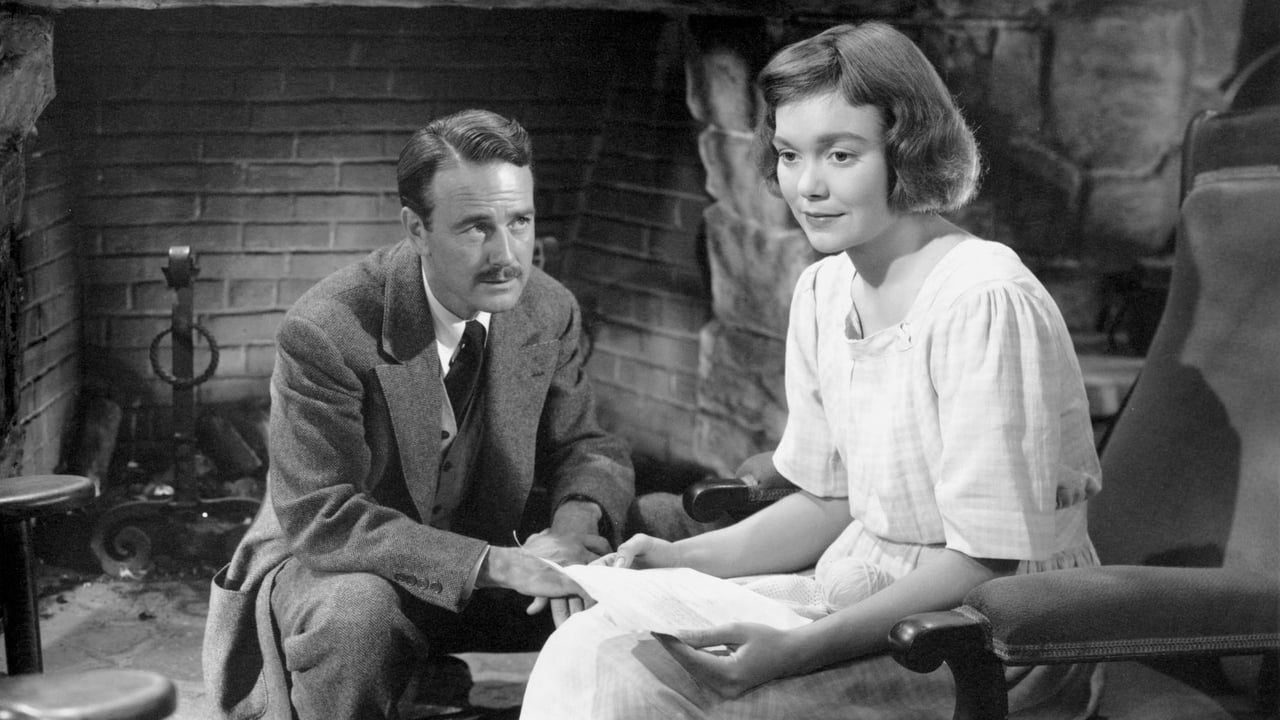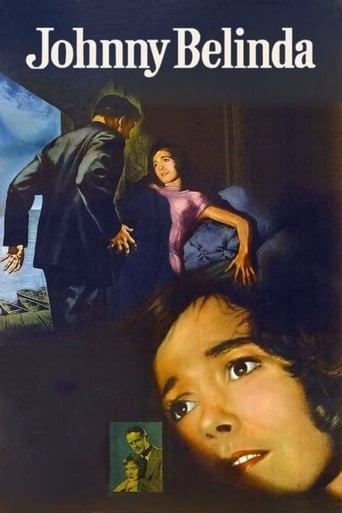

Very very predictable, including the post credit scene !!!
... View MorePlot so thin, it passes unnoticed.
... View MoreThis is one of the few movies I've ever seen where the whole audience broke into spontaneous, loud applause a third of the way in.
... View MoreIt's the kind of movie you'll want to see a second time with someone who hasn't seen it yet, to remember what it was like to watch it for the first time.
... View MoreThis is to some great degree a Scottish film, since most of the characters have Scottish names and even speak with a Scottish accent, and the location is Nova Scotia in Canada. Also the general mentality is more Scottish than anything else, and the environment could have been the Hebrides in the closeness of the ever present threats of the sea and the vast almost desolate grounds of the wild flat islands. But that is just the frame of the drama.Many films have been made on the subject of the hardships of gravely handicapped or invalid people, preferably girls, like Arthur Penn's "The Miracle Worker" 1962, the film with Louis Jouvet on André Gide's best novel "The Pastoral Symphony", Siodmak's "The Spiral Staircase", "Mandy", "David and Lisa" - the list is endless, and it is practically without exceptions in the fathomless interest and high quality treatment of human vulnerability and sensitivity. Jean Negulesco's screening of "Johnny Belinda" is one of the very best examples.There was a flood of Oscar nominations in 1948, but I don't think anyone would have disagreed with awarding that year's Oscar to Jane Wyman and the best film of the year. It is so startlingly real and convincing all the way, the realism is total, and the drama couldn't be more gripping.A deaf and mute girl gets raped by a bully and gets pregnant by the way as the worst possible complication for a case like hers in a small village of provincial prejudice and gossips. Fortunately there is a gentleman doctor at hand, who with delicate diplomacy gets the better of the situation.Lew Ayres didn't make many pictures, and he is almost only remembered for this one and "The Dark Mirror" two years previously with Olivia de Havilland as twin sisters, one of them psychotic, another tricky situation. Lew Ayres is such a winning and sympathetic character, that he could well have made another Ronald Colman, but these two great noir pictures he made was quite enough to establish his reputation for good.Charles Bickford as the farmer and Agnes Moorehead as his wife add to the poignancy of the drama, both play characters with limitations, which serve only to enhance the power of their performance. Also the other villagers are quite convincing and real, and there is much in this film reminding of the Norwegian war drama "The Edge of Darkness" with Errol Flynn as another fisherman, although that's a completely different story, but the environment and mentality are the same.In brief, this is a timeless drama of incapacity and weakness and the struggle to overcome the complications therein. Jean Negulesco directed many outstanding films, but this was maybe the very best one.
... View MoreThe performances by the principle actors-- Jane Wyman as deaf mute Belinda, Charles Bickford as her father, and Lew Ayres as the doctor-- are flawless, and the writing of their characters raises this film above the level of melodrama-- or, rather, almost does."JOHNNY BELINDA" is based on a true and tragic story that took place in on Prince Edward Island, back before the automobile. The movie (and the original stage play) radically fictionalizes one episode in the life of Lydia Dingwell-- rape and subsequent pregnancy--using it to make points about morality. The screenplay ends well before the rest of Lydia's story is told: she died in poverty, and is buried in an unmarked grave near a lot of other Dingwells in a cemetery in Bay Fortune, PEI.Those details do not matter to the film, of course, which is fiction. No such harsh reality flavors the screenplay, but an understanding of hardship does. It is expressed, unfortunately, only by those three characters. All the rest of cast -- even Agnes Moorehead as Belinda's spinster aunt-- are reduced to playing stereotypes of the shallowest order. I want to forgive it, because the movie was not an easy one to get through Hollywood's rose-colored lenses. No doubt the writers had to wrap the story of rape and murder in the most simplistic black-and- white terms possible, and the most pious. At one point, Wyman actually delivers the entire Lord's Prayer in sign language, surrounded by mourners, at her father's deathbed. Even her Oscar-winning performance could not lift that prolonged scene above the level of tedium.Such compromises, of course, inevitably compromise the overall quality of the film. What could have been a great movie-- it rises to greatness because of Wyman in particular, and elements of the screenplay-- is more like an historic artifact of Hollywood as it struggles out of the censorship of the Hayes era. But "Johnny Belinda" is only step in the right direction-- a baby step following a rape.
... View MoreI just saw Johnny Belinda for the first time, and it's wonderful cinema. I kept being reminded of later films I admire, and see where they could have learned elements of their style. The face, that beautiful face of Jane Wyman, how expressive, how poignant! No wonder Reagan fell for her, she was glorious, and without saying a word. And I was watching also the shadows and light, and thought, how very European, and in fact it was by a Romanian-born director, Jean Negulesco. Its setting had elements of the American west, but it was set in Cape Breton, Canada, and portrayed families that fished and farmed and had little contact with the rest of the world. It portrays, a bit melodramatically, small-town prejudice and ignorance, and tackles the issue of rape rather bravely for the time. The Lew Ayres character was a bit too goody-goody for my taste, not much nuance, but he carried off the role well. I've now got to see him in the Dr. Kildare movies.
... View MoreThis is a great storytelling and movie-making rolled into one and I can see why it was up for so many Academy Awards in its day (when they rewarded the best movies.)Jane Wyman seems to get the most attention here but I was totally impressed not only with her but all the actors, the director and the photographer. All excelled in this film, I thought - a great effort all-around.Wyman and Lew Ayers were terrific in the leads, playing endearing characters who were easy to become involved with and root for in this story. Wyman, like Dorothy McGuire in "The Spiral Staircase" (1945) and Alan Arkin in "The Heart Is A Lonely Hunter" (1968), plays a deaf mute effectively with haunting, expressive facial features. I hope people don't overlook Ayers' extremely warm performance as the doctor who truly cares for this woman. Ayers plays a very decent man and does it with a lot of dignity.Charles Bickford was powerful, too, as Belinda's father and ditto for the always-entertaining Agnes Moorhead, playing Belinda's sister. I can't leave out the "villains," either: Stephen McNally, who really looks his part, and his reluctant bride Jan Sterling, an underrated classic-era actress. Jean Negulesco's direction provided numerous interesting low and high-angle camera shots and cinematographer Ted McCord made the most of it, including some great facial closeups. To be honest, I am not familiar with either of these two names but I was very impressed with their work here. Oh.....having Max Steiner doing the music didn't hurt, either!The film gets a little melodramatic at times but it's never overdone. The story flows nicely. No scene - pleasant or unpleasant - overstays its welcome. You get a cohesive blend of heartfelt sentiment, romance, drama and suspense. In addition, the DVD transfer of this film is magnificent. I would like to have seen some behind-the-scenes features with the disc, but the film was so good I am not complaining.
... View More